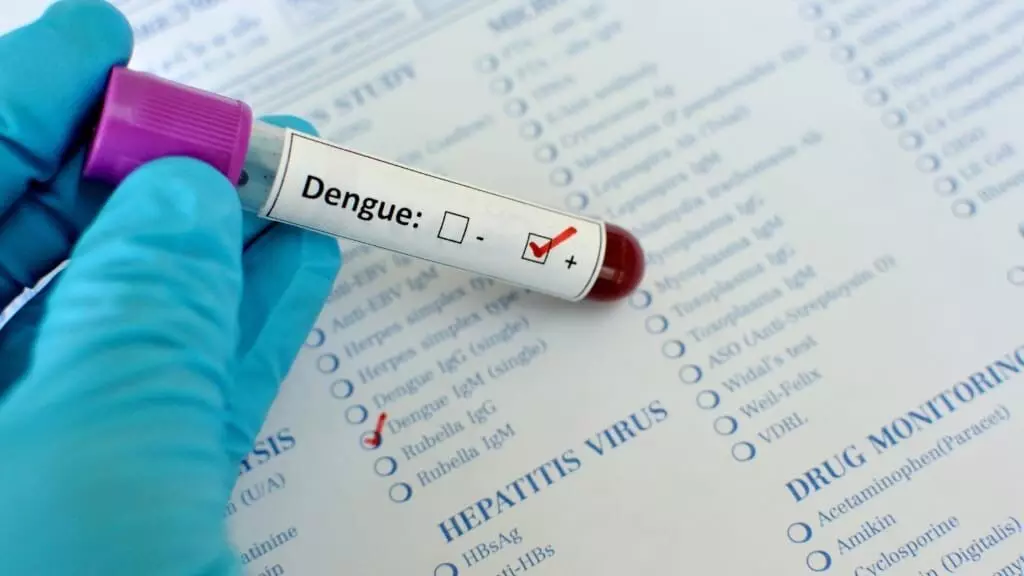2.33 lakh dengue cases in India in 2024: Curbing spread of mosquitoes, antiviral treatment must to prevent outbreaks
In 2025, till now, around 12,000 cases and six deaths have been reported
By Neelambaran A
Representation Image
Hyderabad: Dengue outbreaks are frequent in India, with 2024 being no exception. India reported around 2.33 lakh cases and 297 deaths, as per the details by the National Centre for Vector Borne Disease Control (NCVBDC).
Is 2025 ready for monsoon diseases?
With the monsoon about to set in early this year, the cases are expected to spike across the country. In 2025, till now, around 12,000 cases and six deaths have been reported.
Considering the high prevalence of dengue cases, National Dengue Day is observed annually on May 16 to create awareness, prevention and early management, besides ensuring community participation in prevention.
Understanding dengue fever
Dengue fever is a mosquito-borne viral infection caused by the dengue virus, primarily transmitted by the Aedes aegypti mosquito. It is prevalent in tropical and subtropical regions and poses a significant public health concern. It commonly occurs during the monsoon and post-monsoon seasons when mosquito breeding is rampant.
How is dengue transmitted?
One should be careful about mosquito bites in the early morning and late afternoon, as these could potentially transmit dengue.
Dr Shraddha Sanghani, consultant Internal Medicine, Renova Century Hospitals, Hyderabad, explained more about the aspects of transmission: “Dengue occurs when a person is bitten by an infected Aedes mosquito.
These mosquitoes typically bite during the daytime, especially early morning and late afternoon. There are four strains of the dengue virus (DENV-1 to DENV-4), and infection with one strain gives lifelong immunity to that strain but not to the others. Subsequent infections with a different strain increase the risk of severe complications.”
Phases of dengue infection
Dengue fever usually lasts for 10 days. Dr Shraddha explained in detail the three phases of dengue infection.
1. Febrile Phase (Days 1-3)
This phase begins suddenly with high-grade fever (often >102°F), severe headache, pain behind the eyes, joint and muscle pain (‘breakbone fever’), nausea and skin rash. Blood tests may show a drop in white blood cell (WBC) count and platelet levels.
2. Critical Phase (Days 4-6)
The fever subsides, but this is a deceptive phase. Capillary leakage can lead to fluid accumulation in the chest or abdomen, low blood pressure and organ involvement like liver, heart and kidneys. Monitoring is crucial during this period.
A sudden drop in platelets and a rise in hematocrit are warning signs, and some patients may need hospital admission during this phase for close monitoring of BP, platelets and other organ functions. Sometimes, some patients may develop a secondary infection in this phase as the immunity is very weak.
3. Recovery Phase (Days 7-10)
Fluid is reabsorbed, appetite improves, and blood counts begin to normalise. A second rash may appear, and fatigue is common.
Why do platelets and WBCs fall in dengue?
“The dengue virus affects the bone marrow, where blood cells are produced. It suppresses the production of platelets (thrombocytes) and white blood cells (leukocytes), both of which are crucial for clotting and immunity,” Dr Shraddha said.
Additionally, the immune response to the virus leads to the destruction of platelets in the bloodstream. The low platelet count increases the risk of bleeding, while the reduced WBC count weakens the body’s ability to fight secondary infections.
Aspirin and ibuprofen should be avoided
In the absence of any specific antiviral treatment for dengue, medical management can be primarily supportive to ease the symptoms. The medications include paracetamol (acetaminophen) for fever and painkillers under safe limits.
“Those affected by dengue should avoid aspirin and ibuprofen as they increase the risk of bleeding in the GI tract. The non-medical measures include adequate hydration with oral fluids or intravenous fluids in severe cases. Complete rest is advised. Regular monitoring of platelets, hematocrit and vital signs is important,” Dr Shraddha added.
Severe dengue (previously called dengue hemorrhagic fever or dengue shock syndrome) can lead to internal bleeding, shock, liver damage and even death if not managed promptly.
Prevention of dengue
Currently, vaccines for dengue exist in some countries, but vector control remains the most effective method of prevention.
Dr Shraddha said, “To prevent dengue, people should eliminate mosquito breeding sites (stagnant water), use mosquito repellents, nets and wear full-sleeved clothing, keep doors and windows screened or closed and ensure community-level fogging during outbreaks.”